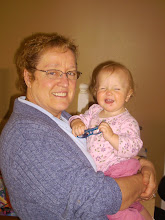The CBC is on a campaign to interview 500 centenarians in the next year. They say that currently this is the fastest growing demographic. Once interviewee, a woman who was 102, said that you should never think of your age, just do what you want to do every day. It struck a real chord with me. By this standard 62 could mean either 40 years of life left, or it means nothing at all if you never think of it anyway. I rarely do - think of my age that is.
I have thought of it numerous times this summer while I was having a fibromyalgia flare-up but I have concluded that this is only indirectly related to aging. It is more a function of my genetic predisposition to wheat intolerance - the Icelandic connection. (When did those people get much grain for 1000 years?) I also seem to be having issues with anything red - red candy, watermelon (alas), strawberries, other red berries. It's a bit hard to avoid all those things all the time, like at the dinner party last night, but only because I love yummy desserts. Further proof that this is not a sign of aging is the fact that I have grand-children whose eczema is triggered by red, and five of my children are more or less off wheat and the sixth one should be. The youngest of these is not yet 27. At least 5 of my grandchildren are completely off wheat or have to limit amounts. So much for arthritis being a sign of aging, at least for me.
When I was younger, birthdays definitely had meaning. Six was a landmark in aging, i.e. starting school. Thirteen meant become a teen-ager, although that didn't mean much to me in the 1960s - I was more interested in my horse. Sixteen meant I could drive. Eighteen meant I was leaving home and becoming an adult. Et cetera, Et cetera. My age ceased to mean much after 30. When my son David was born, someone asked me how old I was and I hadn't thought about it since 30 and had to do the math to answer. It was like that for years, me doing the math to figure out my age. I don't know why since age 60 I have been so aware. Luckily it hasn't changed my life much.
What have I noticed about being 60+ that is different from younger times? Only one thing. When I let myself get soft, getting into shape takes longer, is more painful, and must be approached more gently than I ever had to before. I just have to find a regular way to exercise during Alberta winters, and I definitely have to make it a priority or I WILL be feeling old.
In every other way my life is happier and busier. I am 3/4 done a Masters Degree program, am starting a program in Equine Assisted Learning with a partner, am hoping to be deliver a new workshop to the GOA soon, and I am registered with the City of Lethbridge as a writing coach. I also have 17 very soon to be 18 grand-children and they are getting to be a lot of fun for me. I thought you might like to see what they look like, at least what they all looked like a year ago. Children grow up so fast. What does that mean about aging?




